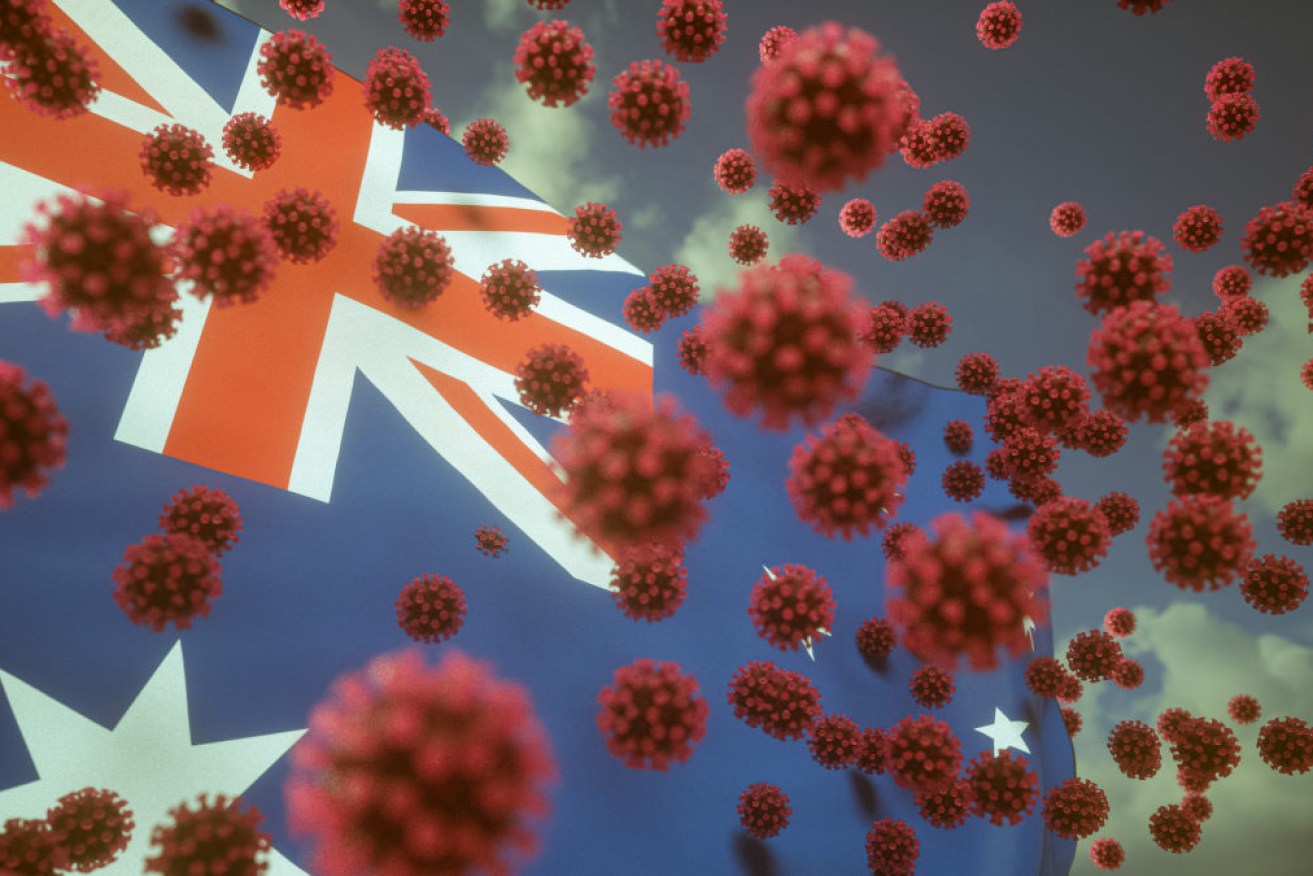Coronavirus shows Australia needs a national centre for disease control, doctors say


Some state and territories could open up before others. Photo: Getty
Australia is the only OECD country without the equivalent of a national centre for disease control (CDC), and doctors say the coronavirus pandemic has exposed gaps in the system.
Australian Medical Association South Australia president Chris Moy told The New Daily the at-times inconsistent coronavirus advice from state authorities highlights the need for a national CDC.
In one instance, state health authorities in Victoria and South Australia issued contradictory advice about how suspected coronavirus cases should be triaged by GPs.
In a poster provided to Victorian GPs, the state health department incorrectly advised the public to “tell staff immediately” if they were experiencing coronavirus symptoms and had returned from mainland China.
By contrast, South Australian doctors were given signs that correctly instructed patients not to enter the premises but to “call the reception/GP for advice”.

GPs in South Australia and Victoria were given contradictory advice. Photo: BetterHealth Vic/SA Health
The AMA has long advocated for a national CDC to help co-ordinate the preparation for and response to outbreaks of infectious diseases.
“People are hearing different messages from different people … this is where it would be much better to have a national response,” Dr Moy said.
The bottom line is, this is a condition which is affecting a nation, not a state.
“It requires a nationally co-ordinated response with the best decision making, best advice, and as little inconsistency – which can lead to more problems – as possible.”
But the problem goes deeper than the coronavirus, Dr Moy said, with the “strong need” for a CDC also shown by syphilis outbreaks in central Australia.
Australia, much to our disgrace, allowed syphilis to redevelop, primarily in the Indigenous population,’’ Dr Moy said.
“Part of the reason has been the lack of co-ordination across the state boundaries. Because obviously you’ve got South Australia, Northern Territory, New South Wales, Queensland and Western Australia.”
The “lack of co-ordination” between states on testing “caused some significant issues in terms of monitoring and response”, Dr Moy said.
“It gets back to the fact that in Australia, the public health system is primarily a state-based model,” he said.
This means that “each state is responsible for its own turf and there are potential gaps in monitoring across borders” resulting in an “uneven” response.
National CDC ‘would add value’
The issue of whether Australia should have a national CDC has been raised “many times” with government, Curtin University pro vice-chancellor of health sciences Professor Archie Clements said.
“The government believes that our public health structures are world class and that a CDC wouldn’t add value to what we’re already doing,” he explained.
Although Professor Clements, an expert in infectious disease and epidemiology, agrees that Australia is “as well prepared, if not better prepared, than pretty much any other country in the world to manage disease epidemics”, he believes a national CDC “would add value”.
“A large independent organisation that can make decisions about the best way to manage epidemics, that could be the the location where experts come together, and where the best research is used to inform policy and practice would be a good thing,” he said.
“But one of the problems that Australia has is that we’ve got a Commonwealth and we’ve got eight jurisdictions under that, all of which are responsible for managing public health.”
The current system “creates inefficiencies”, Professor Clements said.
“There are problems with standardisation. There are problems with
implementation of public health programs at the national level, because they’re co-ordinated across all those jurisdictions,” he said.
“What a national CDC could do is streamline all of that and manage things more centrally. Personally, I think that would be a good thing for Australia.”
Australia a ‘world leader’ on disease control: Health Department
When asked if Australia needs a national CDC, a Department of Health spokesperson told The New Daily the government is “profoundly committed to maintaining Australia’s reputation as a world leader when it comes to disease control, and protecting the health and wellbeing of all Australians”.
“The World Health Organisation has identified Australia as one of the most well-prepared health systems in the world, according to a 2018 evaluation report on Australia disaster preparedness,” the spokesperson said.
“Australia has a disease control framework in the form of the Communicable Diseases Network Australia (CDNA).
“The health co-ordination and leadership exhibited by the CDNA, since its inception in 1989, is a major reason why Australia is at the forefront of international disease management.
“The CDNA is supported by the Australian Health Protection Principal Committee (AHPPC), which provides overarching national leadership through cross-jurisdictional collaboration on health protection matters.
“AUSMAT teams also play a significant role in Australia’s disease control response.”
About 1.7 million P2 and surgical masks have been made available from the National Medical Stockpile as part of the government’s response to COVID-19, including to GPs, health workers and pharmacists, the spokesperson said.
The government has also “contracted suppliers to provide an additional 54 million surgical masks and P2 respirators”, they said.
“These will be available for a range of medical and aged-care professionals to care for patients with suspected or confirmed cases of COVID-19.”








